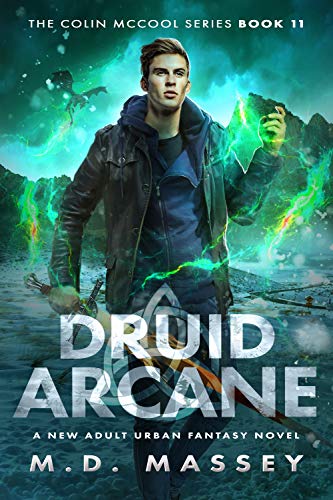How I Wrote A Novel During the Pandemic by M.D. Massey
04 Aug 2020
By M.D. Massey
Writing a novel is one of the most daunting tasks a writer can attempt. All those words, all those pages, not to mention handling plots and sub-plots, pacing and dialogue, character development and themes—it’s enough to make you lose your hair, and I’m somewhat of an expert on that topic. Yet, finishing a novel is an achievement I would list among the most satisfying I’ve experienced in my nearly five decades of existence.
Prior to the pandemic, I’d written and published twenty urban fantasy and paranormal suspense novels, novellas, and short story collections. In fact, I’d just released the tenth novel in my Colin McCool urban fantasy series when the lockdowns went into effect. Needless to say, the lockdown wrecked my book launch. And while I did make up the sales in the months after, at the time it felt like a major setback.
But, one can cry over spilled milk, or one can acquire more cows. I knew that sitting on my thumbs fretting over the state of the world would not help me sell a single additional copy of my novels. So, I did what every experienced author does when a book release fails to go as planned—I got to work on my next book.
The Apocalypse Novelist—Or, Avoiding Information Overwhelm
Accomplished authors all share a secret that is pivotal to their success. And that secret is, they write every day, even when they don’t feel like it. I’ve never been one to experience writer’s block, but I have to admit that after I’d logged onto my social media accounts each morning, I felt anything but a strong motivation to write.
For that reason, the first thing I did was turn all that stuff off. For starters, I stopped watching the news, and I installed a browser plugin that blocks my Facebook feed. Then, I subscribed to a few email newsletters that boil each day’s top news stories down to a few key paragraphs, resolving to scan and delete them immediately when they hit my inbox.
This forced me only to use Facebook and other social media sites for reader interaction and to conduct business. In turn, that freed me up emotionally and timewise to attend to things that mattered most. Namely, seeing to my family’s welfare and finishing my next novel.
Then I went to work.
Writing When You Don’t Feel Like Writing
As I said, writers write. They don’t waste time vacillating over whether they should write, or complaining about writer’s block, or talking with the other writers in their writing group about how they’d finish their novel, if only they had the inspiration.
Instead, they sit down at their writing desks at the same time every day, and they write until they hit their goal for that day, be it a set period of time at the keys, or a certain number of words, pages, or scenes. This is the daily discipline that often separates the dilettante from the career author.
Yet, there were days that I simply did not want to write, especially after we lost two of the elder members of our family to COVID. Added to that emotional burden was the fact that my novel specifically dealt with themes of loss and death. Certainly, it made the writing of said related scenes and chapters all the more poignant, but it did nothing for my desire to write them.
My solution to this challenge was to make an agreement with myself that I would at least write one scene a day, or roughly 1,000 words. That might seem like a lot to some who are reading this, but for an author who routinely writes 3,000 to 5,000 words a day, it felt like throttling my muse. That said, by committing to a bare minimum output I was able to slog through those sections that caused me the most dread, without feeling guilty for missing my daily word count.
This proved to be the most important decision I made for my mental health and sanity as I finished the novel. Making periodic progress toward my goal gave me a regular and much-needed sense of accomplishment, a small daily emotional boost that helped me get through a very rough time. Indeed, it turned out to be my saving grace.
Other Tricks for Producing When the World Stands Still
Another minor challenge I faced during this time—and I’m sure other work-at-home parents can relate—was having my family home with me around the clock during the lockdowns. Thankfully my wife is an essential worker, and I am very grateful that we didn’t lose her income during this difficult time. However, with her working remotely, and my son completing his school year from home online, distractions were at an all-time high for this stay-at-home author.
To deal with that challenge, I locked myself in my office with a white noise machine running nearby, and a noise-canceling headset over my ears. Or, I’d turn up some fast and loud music and get lost in the rhythm while I worked on my novel. Both techniques served to drown out any background noise so that I wouldn’t break concentration during my scheduled daily writing sessions.
Additionally, during that time I experienced increased pressure from my “day job” as a small business consultant. I’ve run my consulting firm for years as a one-person show, and as you can imagine, my clients faced significant financial challenges after the lockdowns commenced. So, I had to increase the service and support I typically provided, all while continuing to make progress on my book.
How did I balance this? I dedicated specific time to each endeavor, and I made sure that I never allowed one to interfere with the other. Doing so prevented me from getting too distracted by my day job responsibilities to finish writing my novel.
The Final Outcome?
I’ve seen writers boasting on social media about how they used the lockdown to crank out twice as much work as before. I have about as much regard for those writers as I do for the social media influencers who encouraged their followers to learn a new language or get a degree during the lockdown. In dire times such as these, I see their admonishments as tone-deaf humble-bragging that serves no one but those who post such nonsense.
So, I’m not about to boast about my accomplishment, as it certainly took me longer to write this novel than any I’d written over the last three years. Yet, finish it I did, despite facing some personal and emotional obstacles that could’ve easily derailed the project. Druid Arcane releases July 31st, and I’m hoping that this launch goes much better than the last.
But if not, I know what I’ll be doing come August—namely, working on my next novel.
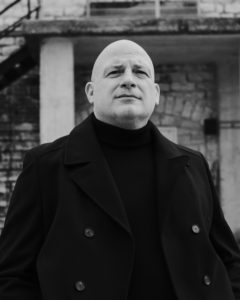
M.D. Massey is the author of the new book Druid Arcane.
Connect with M.D:
Author Website
Buy The Book
Sign up for our email and we’ll send you the best new books in your favorite genres weekly.
Related
grant
Recommended Posts
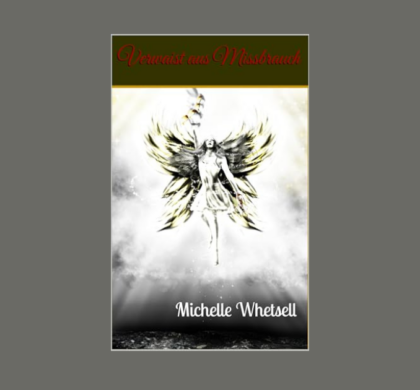
Interview with Michelle Whetsell, Author of Verwaist aus Missbrauch
24 Dec 2024 - Author Interviews, eBook, News
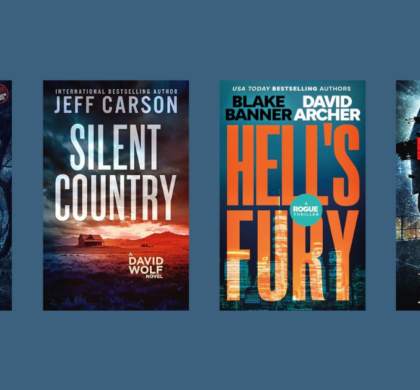
New Mystery and Thriller Books to Read | December 24
24 Dec 2024 - eBook, Mystery, News, Thriller, Weekly Releases
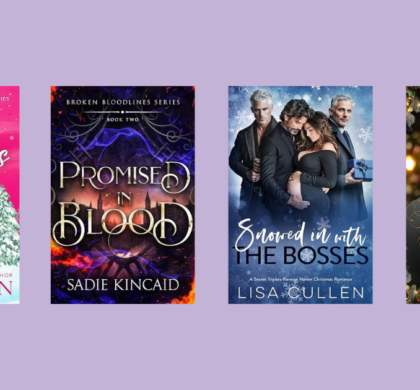
New Romance Books to Read | December 24
24 Dec 2024 - eBook, News, Romance, Weekly Releases
